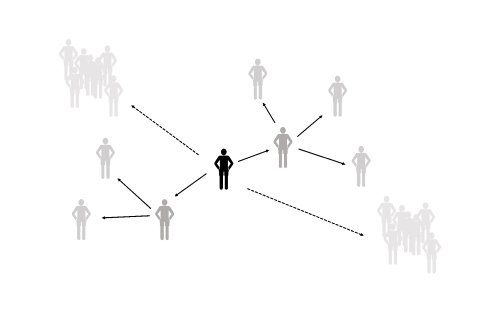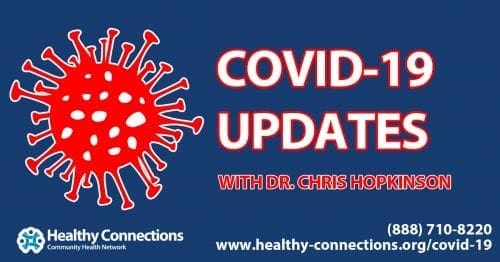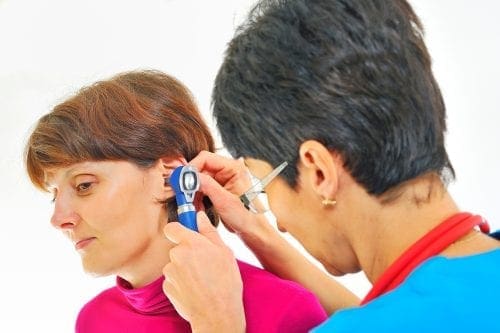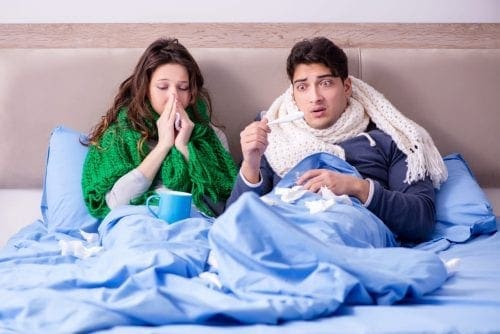Social Distancing … Why is it so important?
 BY DR. CHRIS HOPKINSON
BY DR. CHRIS HOPKINSON
Social distancing is a term that you have probably heard a lot in the past couple of weeks. But, do you feel confident how to practice social distancing? Perhaps it feels unnecessary or overbearing for authorities to limit your movements. Today we’ll briefly explore social distancing, with some tips and some food for thought.
Why social distancing?
The coronavirus causing COVID-19 passes from person to person by either close contact, direct exposure to secretions, or shared surface contact. What does this mean?
- Close contact: This is hard to define, but a good working rule is that close contact is spending 10 minutes or more within 6 feet another person
- Direct exposure to secretions: Somebody coughs or sneezes on you, or near you! Nobody “nose” for sure, but experiments suggest that cough and sneeze particles can leave your face at upwards of 30mph, travel nearly 30 feet and linger in the air for several minutes. These particles are tiny, but not as tiny as a virus and therefore could contain a lot of virus
- Shared surface contact: Somebody with the virus can touch their face, sneeze in their hands and fail to hand-wash effectively, or cough/sneeze near solid surfaces, leaving the surface contaminated with tiny amounts of respiratory secretions and large amounts of virus, which can survive for a prolonged period of time. You can pick the virus up by handling that surface and transfer it to your respiratory tract when eating or touching your face. Many surfaces pose a risk, but particularly those you can’t avoid touching, door handles, gas pumps, shopping carts, faucets, credit/debit card readers, chairs and armrests in waiting areas and public spaces
Your risk of acquiring COVID-19 is heavily influenced by your risk of exposure. When thinking about “who” and “what” you have been exposed to, you need also to think about who and what your contacts have been exposed to. The diagram below illustrates that our social contacts can be thought of as a web, with our risk of exposure going further than just the individuals with whom we have direct contact. The further out into that web you go, the more remote the risk. But the bigger the network, the larger the risk, especially if your first circle of contacts is large.
The COVID-19 illness is not wonderfully well understood, but it is likely that people shed virus (and may be infective) BEFORE they show signs of illness, and possibly for a short while AFTER they recover. Similarly, it appears likely that some people may not even develop symptomatic illness despite being infected and transmit the virus.
Keeping your network as small as possible limits your risk of exposure.
How to practice social distancing
Some rules of thumb:
- As much as possible do not interact with people except those that you live with
- Grocery shopping
- Carry wipes and clean down your cart handle
- Try to visit at off-peak times
- Plan ahead – don’t linger in store
- Maintain your distance at check out
- Use alcohol gel to clean hands thoroughly on entering and exiting the store
- At the gas station
- Pay at the pump if at all possible
- Use the gloves if provided
- Clean your hands thoroughly with alcohol gel before and after using the pump
- Wipe down your steering wheel frequently with appropriate cleaning wipes
- If you feel sick
- Contact us for advice
- Do not leave the house (unless you are sick enough to need emergency medical care, of course)
- Try to isolate yourself from family members who are well
Healthy Connections has more information on COVID-19 at www.healthy-connections.org/covid-19.





 Here at Healthy Connections, we want to assure our family of patients that we are taking the current coronavirus threat seriously. Everybody has questions, many of us feel anxious about our health or that of loved ones, and all of us are living with uncertainty.
Here at Healthy Connections, we want to assure our family of patients that we are taking the current coronavirus threat seriously. Everybody has questions, many of us feel anxious about our health or that of loved ones, and all of us are living with uncertainty. In an effort to keep our patients and staff healthy, we are screening all patients before you enter a Healthy Connections clinic. A staff member will meet you at the door to take your temperature and ask you some screening questions related to COVID-ID infection. If a COVID-19 risk is identified, you will be directed to a designated area for further evaluation. Otherwise, you will proceed to check in with your visit as usual. We apologize in advance for any inconvenience this may cause. We will continue to post updates at
In an effort to keep our patients and staff healthy, we are screening all patients before you enter a Healthy Connections clinic. A staff member will meet you at the door to take your temperature and ask you some screening questions related to COVID-ID infection. If a COVID-19 risk is identified, you will be directed to a designated area for further evaluation. Otherwise, you will proceed to check in with your visit as usual. We apologize in advance for any inconvenience this may cause. We will continue to post updates at  Influenza is a potentially serious disease that can lead to hospitalization and sometimes even death. Every flu season is different, and influenza infection can affect people differently, but millions of people get the flu every year, hundreds of thousands of people are hospitalized and thousands or tens of thousands of people die from flu-related causes every year. An annual seasonal flu vaccine is the best way to help protect against flu. Vaccination has been shown to have many benefits including reducing the risk of flu illnesses, hospitalizations and even the risk of flu-related death in children.
Influenza is a potentially serious disease that can lead to hospitalization and sometimes even death. Every flu season is different, and influenza infection can affect people differently, but millions of people get the flu every year, hundreds of thousands of people are hospitalized and thousands or tens of thousands of people die from flu-related causes every year. An annual seasonal flu vaccine is the best way to help protect against flu. Vaccination has been shown to have many benefits including reducing the risk of flu illnesses, hospitalizations and even the risk of flu-related death in children. Healthy Connections will now have Friday clinic hours at six Arkansas locations.
Healthy Connections will now have Friday clinic hours at six Arkansas locations.